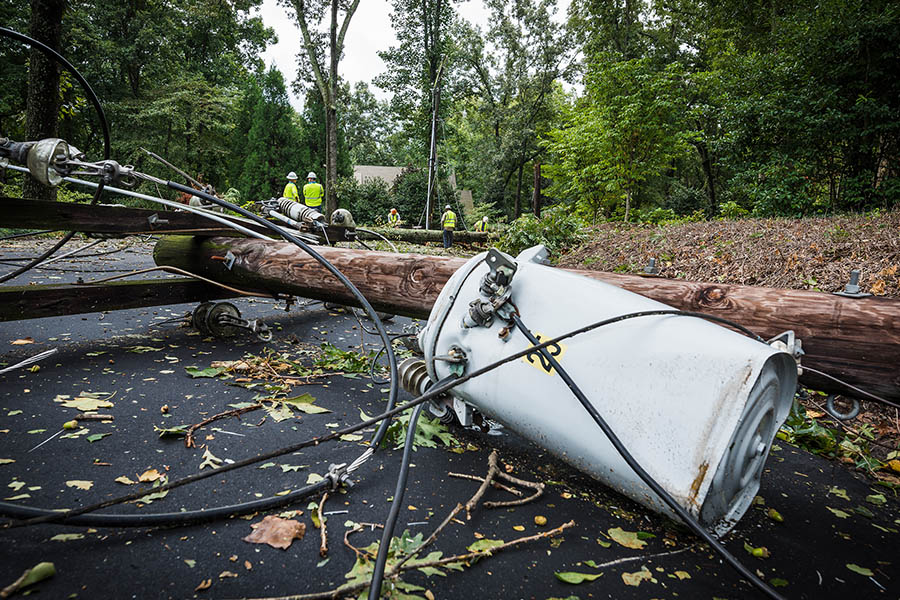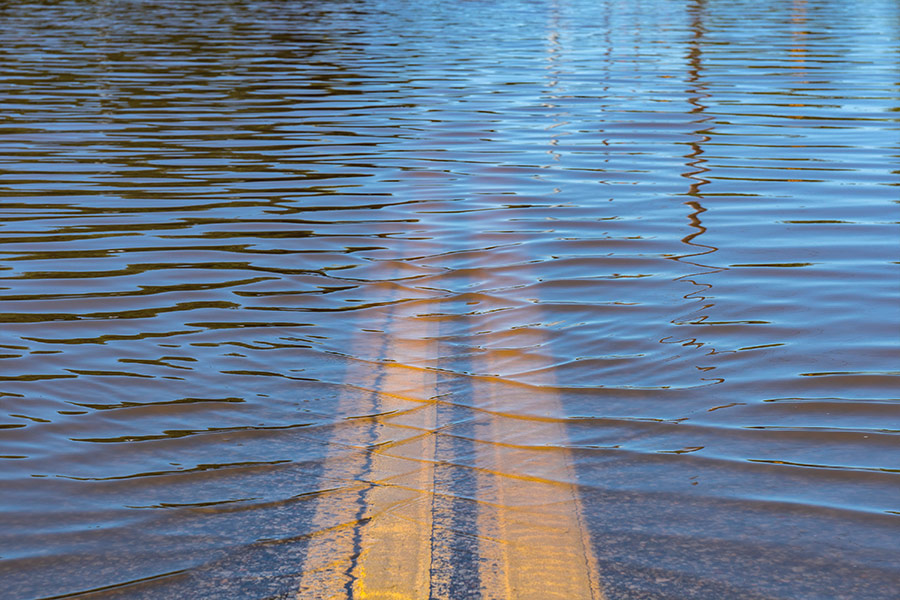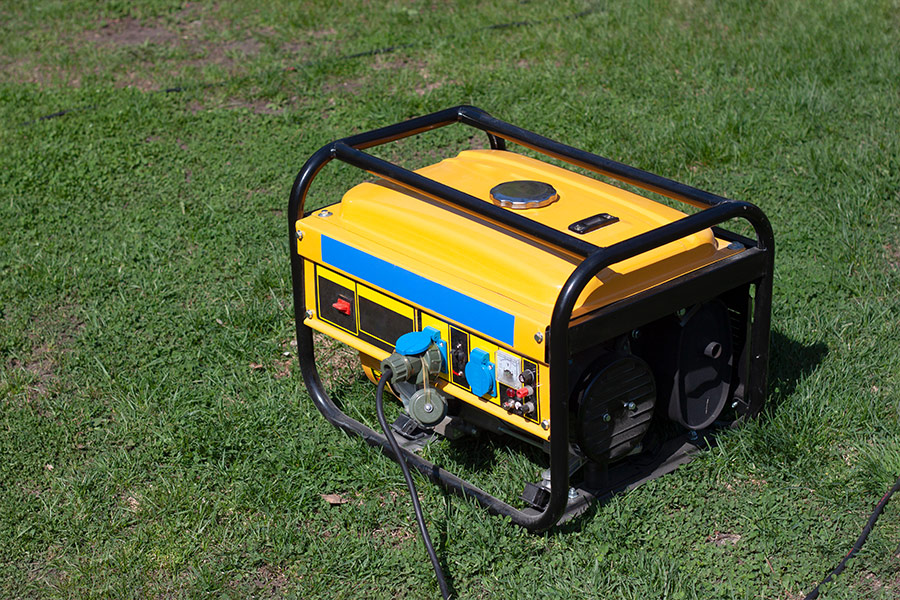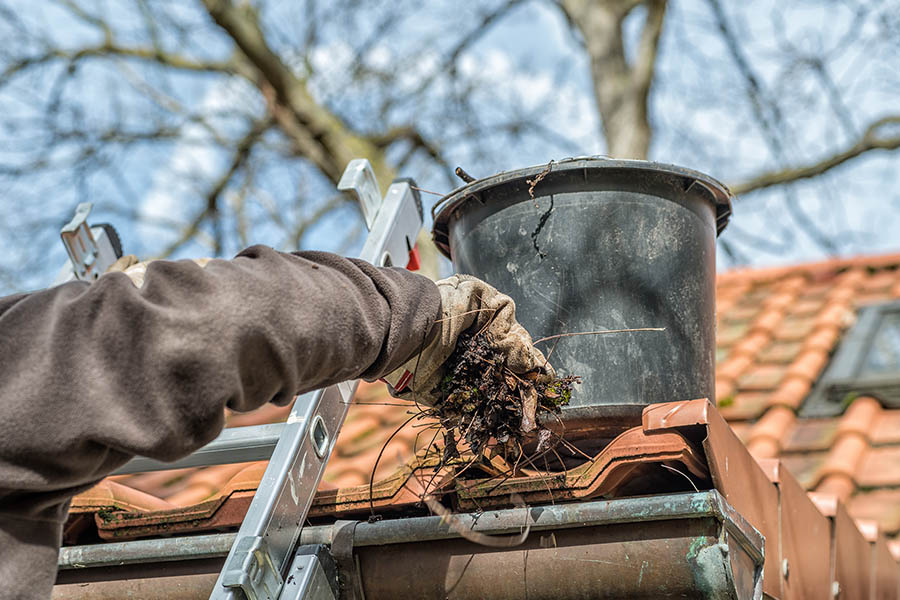Emergencies
PPL Electric UtilitiesBe Safe, Be Prepared
Before storms/outages:
- Make a plan: Whether at home or work, develop an emergency plan involving each person at your location so you’ll know how and where to meet, how you will contact each other and what to do in different situations.
- Be prepared: Prepare an emergency kit, including non-perishable food, water, medication, first aid supplies and any pet supplies you may need. Be sure to include batteries and battery-operated flashlights. Store your emergency kit in one location, preferably in an air-tight container. Charge your phones and other devices before severe storms.
- Stay Informed: PPL Electric Utilities uses several ways to communicate with customers before storms and during emergencies. Customers can sign up for alerts at pplelectric.com/alerts. Alerts can be customized based on your preferences, including phone, email, or text message. If an outage does occur, customers can get outage alerts and updates on our website at www.pplelectric.com/outage Use surge protectors to help protect your appliances and electronics.
- Have ground fault circuit interrupters (GFCIs) professionally installed on your outlets. These safety devices can cut off power instantly if there's a safety hazard.
During storms/outages:
- In the event of an emergency, call 911.
- Avoid using candles for lighting because they can start fires. Use flashlights instead.
- Keep warm air in during winter by using your doors as infrequently as possible, and close off unoccupied rooms.
- Avoid opening your refrigerator and freezer as much as possible.
- Do not use ovens or ranges to heat your home.
- Unplug sensitive home electronics. Turn off ovens and space heaters that may have been on when the outage occurred. link
Downed Wires
- Never approach downed power lines. Stay at least 100 feet away and keep kids and pets away. Always assume they are energized and carrying electricity.
- If you see a downed power line, report it immediately to 1-800-DIAL-PPL (1-800-342-5775).
Flood Safety
- Never use electric appliances or touch electric wires, switches or fuses when you're wet or when you're standing in water.
- Stay clear of electrical equipment in places, such as basements, where flooding has occurred.
- Don't attempt to turn off power at the breaker box if you must stand in water to do so. Call us at 1-800-DIAL-PPL (1-800-342-5775) to shut off power at the meter.
- Keep electric tools and equipment at least 10 feet away from wet surfaces. Do not use electric yard tools if it's raining or the ground is wet.
Generator Safety
- If you're using a generator, please be sure to follow the manufacturer’s guidelines for operation and take heed of any warnings. This includes:
- Making sure you use the proper fuel for the generator and only add fuel when the generator is cool.
- Making sure to inspect the generator before each use to ensure it’s in good working order.
- Keeping them away from windows and vents that could allow carbon monoxide to sneak inside. Even though you will be using the generator outside, make sure that your home has battery-operated carbon monoxide detectors that are in good, working condition.
- Make sure permanent stand-by generators are hooked up by qualified professionals.
- Generators emit carbon monoxide. Never operate a generator in any home, garage or enclosed area.
- Place generators in a dry, well-ventilated outdoor location.
- Use only safety-tested, heavy-duty cords designed for outdoor use.
- Never plug a portable electric generator into a wall outlet or connect it directly to a home’s wiring. Be sure to open the main breaker in your panel box. Not doing this can energize power lines and injure you or others working nearby.
- Turn off or disconnect all appliances and lights before operating a portable generator.
- Once the generator is running, turn on your appliances and lights one at a time to avoid overloading the unit.
- Shut down generators properly. Before shutting down a generator, turn off and unplug all appliances and equipment being powered by the generator.
- Remember to do maintenance between uses of generators: inspect filters, spark plugs, oil and fuel.
Ladder Safety
- Before using a ladder, survey the area, look up to make sure you are not in danger of contacting overhead power lines.
- Always assume any power lines are energized.
- Keep a good distance from any power line, transformer or power equipment.



